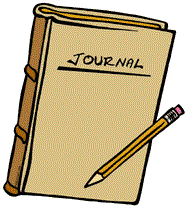Our last three class sessions will be conversation panels based on your research and “big idea” papers. These are something between presentations and discussions… each person will have the chance to talk in which you need to BRIEFLY convey the main points or innovative structure of your paper. Make sure your audience (who of course have not read your paper) clearly understands what your “big idea” was and how you connected your 4 thinkers. Do not just read from your paper, and do not prepare any slides or other visuals.
I have divided our class papers into themed panel sessions (similar to an academic conference). Each panel will have 30 minutes, and will feature 4-5 students. This means you have about 6-7 minutes MAX for each person, but I would recommend planning on more like 2-3 minutes, with time for discussion among the panel to tie the big ideas together. Since there is no final exam, this represents our opportunity to synthesize and tie up the themes of the course as a group. I am very proud of the work you have done as a seminar together and hope this feels like an appropriate crowning event of all your hard work.
The order listed here is simply alphabetical within each session – this may not be the exact order you’ll speak in
Tuesday April 29: Rights of Man (and Woman)
Session 1 10:05 – 10:35
Inalienable American Rights
T. Egginson “The Evolution of Freedom of Speech: The Question of Unpopular Ideasâ€
E. Fee “Innate Equalityâ€
M. Froio “The Role of Government and the Natural Rights of Peopleâ€
J. Troccolo “The Impact of Immigration Throughout the Years”
Break 10:35 – 10:45
Session 2 10:45 – 11:15
Women’s Rights
M. Balich “Women’s Rightsâ€
E. Boutilette “Women’s Rights: What Women Thought Needed to be Doneâ€
K. Bunker “The Dynamic Nature of the Gender Equality Movementâ€
J. Paradis “Anti-Feminism and its Hindrance on Women’s Suffrageâ€
K. Paré “Role of Women in America: Injustices in Treatment as Seen by Four Womenâ€
Thursday May 1: Liberty and Justice for All
Session 1 10:05 – 10:35
Grassroots Movements, Civil Rights and Social Change
J. Hardy-Lavoie “American Socialismâ€
J. Kelley “The Evolution of African American Civil Rightsâ€
A. Morrissey “Inequality in Three Formsâ€
R. Shea “Impact of Leadershipâ€
Break 10:35 – 10:45
Session 2 10:45 – 11:15
Racial Equality
S. Perreault “How Racial Equality Has Changed in the United States”
R. Reynolds “Racial Equality Through Eight Eyes”
R. McWeeney “Racism and Equality in the United States”
T. Schroeder “The Struggle for Racial Equality”
Tuesday May 6: War and Peace
Session 1 10:05 – 10:35
Conflict and Balance
O. Hammerle “The Trouble with Hydrovite or Liberty’s Balancing Act: Individualism versus Collectivism on the Moon”
R. Kelley “‘Striking at the Root’: American Philanthropy and Altruism as a Means for Personal Growth”
B. Klaes “War and Diplomacy: Views of Four American Presidents”
A. Rezk “Church State Separation”
Break 10:35 – 10:45
Session 2 10:45 – 11:15
Peace Out (Transcendentalism and Nature)
T. Kanan “Transcendentalism: A Comparative Perspective”
L. Moon “Individual Freedom and Spirituality”
W. Whearty “Transcendentalism Throughout Time”
C. Wilson “Naturalism in American Literature”
 Journal Prompt #9 – due Wed 5/7 For your final journal entry, consider what you’ve learned in this class and also *how* you’ve learned in this class. Look back over the syllabus. How has your understanding of American intellectual traditions and core national concepts grown over this semester? What readings did you feel you learned from the most, and the least? Which unit(s), projects, or conversations most engaged your interest? I’d also be curious to know what you wanted to learn but didn’t – what didn’t we cover, or get to, that you hope to explore further once this class is over? What advice would you have for students taking this class in the future?
Journal Prompt #9 – due Wed 5/7 For your final journal entry, consider what you’ve learned in this class and also *how* you’ve learned in this class. Look back over the syllabus. How has your understanding of American intellectual traditions and core national concepts grown over this semester? What readings did you feel you learned from the most, and the least? Which unit(s), projects, or conversations most engaged your interest? I’d also be curious to know what you wanted to learn but didn’t – what didn’t we cover, or get to, that you hope to explore further once this class is over? What advice would you have for students taking this class in the future? 